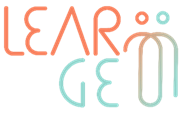We often experience or become aware of age bias. Such biases exist in all facets of life, including work life. For example, we may observe employers refusing to invest in the further development and training of employees of a certain age or employer who are reluctant to give work involving decision making to younger employees. This type of bias leads to the alienation of a significant part of the workforce and their exclusion from learning and training opportunities aiming at increasing their efficiency and the productivity of their employers.
The ERASMUS + European project entitled τίτλο LearnGen: Intergenerational Mentoring and Learning in the Workplace deals with intergenerational learning as a significant tool for inclusion and interaction between younger people (aged between 18 and 30 years old) and older people (aged 50+) at the place of work. Through the development of this project we aim to inform companies, managers and adult training educators about the benefits of including all employees in the workplace regardless of age to cultivate social cohesion and acceptance of intergenerational differences.
Intergenerational learning is defined as the way in which people of different generations can transfer knowledge to each other. When different generations work together to exchange views, impart knowledge and values, and develop skills through their interaction, it becomes an important aspect of lifelong learning that is significant to all people regardless of age. Through intergenerational learning, mutual understanding and the development of an educational relationship are promoted, while at the same time the generational gap phenomenon is reduced.
How can intergenerational learning be developed? An important way is deliberate and systematic guidance. Most of us are familiar with the concept of a Mentor at work who is usually a more experienced, frequently older person who takes care of a less experienced, often young person to teach him/her some things. Equally important though is reverse mentoring where the younger person undertakes to teach some knowledge to an older colleague. Young people, in addition to having the opportunity to learn from the knowledge and experiences of older people, also have a lot to teach respectively, mainly digital skills, technological challenges and literacy on social media.
The LearnGen project aims to develop training materials for organizations, employers and employees so that they can integrate mentoring into their training and human resource development programs and develop the necessary skills that the opposite generation can teach them.
You can follow us on Facebook and visit our website www.learngen.eu for more information and project updates.
Kiki Kallis
July 2021

